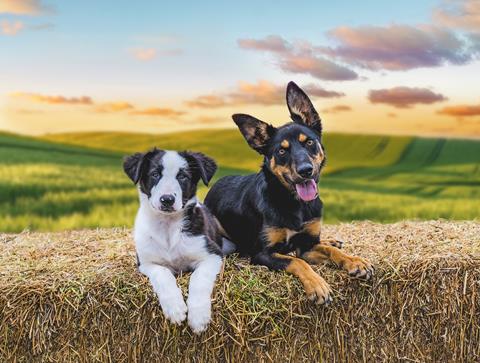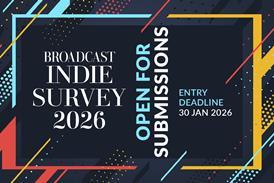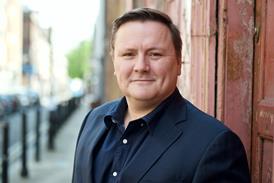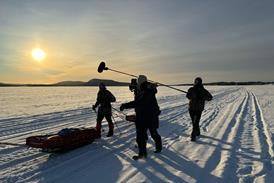ABC, SBS and 9 Network commissioners discuss their remits and the need for localised content at Broadcast Intelligence panel
Commissioners for Australian public broadcasters, the ABC and SBS, and Australia’s highest rated commercial broadcaster, 9Network, are united in their search for regional outback stories.

Speaking on Broadcast Intelligence’s Commissioning Down Under panel, the ABC’s head of documentary and specialist factual Susie Jones noted that “rural and regional stories work really well for the ABC”.
Meanwhile, fellow panellist Bethan Arwel-Lewis, factual commissioner at SBS said regional outback stories have international appeal, particularly in the UK, so there could be opportunity for co-commissioning on these projects too.
ABC are already seeing the benefits of this, Jone said, with one of its highest-rated factual series, Muster Dogs, having recently been optioned as a format by Ricochet.
The series explores the world of dog training on Australian farms.
As public service broadcasters, both the ABC and SBS have a duty written into their charters to broadcast content that reflects Australia.
Arwel-Lewis said she was looking to reflect regional life, through stories that “elevate” regional voices for SBS.
Meanwhile, Jones wants to be surprised: “Contemporary Australia regional stories can mean many different things so I can’t articulate what we want other than we want more of those. We’d be really open to seeing pitches in that space that take us into worlds that perhaps city-dwelling Australians aren’t familiar with.”
Content that takes city-dwelling Australians into worlds they may be unfamiliar with is also sought at commercial broadcaster 9Network.
Adrian Swift, head of content, production and development at 9Network, cited a “paucity of good regional outback stories on commercial free-to-air” a gap which he is keen to fill.
Swift said his priorities were to establish: “What story are we telling? What are we learning? What’s different? and What’s our way in?”
Beyond the appetite for regional content, across the board the commissioners want what Arwel-Lewis summarised as “uniquely Australian” content.
Be it city-based, rural, or anywhere in between, the commissioners said they wanted shows that would work for the distinct Australian market.
The panellists were also united in their take on the role of access in commissioning - access is all well and good, they said, but what matters most is how that access is used.
For Swift, RBT (Random Breath Testing) is a good example of this. The show, which is predicated on the Australian police’s practice of pulling over drivers at random for breathalyser tests, uses an on-screen counter to gamify the reveal of the test results.
“It’s just a very little clever twist on a part of policing that you don’t normally see, and it’s little things like that that I think can elevate what can otherwise be a simple access doc.”
Jones takes a similar view, with form being as important as the access that underpins it: “I’m really open to a pitch that will make me sit up and look at access in a different way.”
She also cautions that access being sold as “exclusive” really does have to “be a world that is unseen”.
Similarly, Arwel-Lewis remarks: “When you’ve got access I would also think about what else you have got.”
The Hospital: In the Deep End is an example of how access can be elevated by other elements such as talent. The series sees the Australian public health system through the eyes of three well-known celebrities working on the front line.
Talent used in this way can be crucial for Arwel-Lewis, especially if they have a connection to the subject matter. Not only can some people bring extra audience, but the commissioner also points out how they can provide an easier entry point into more niche or emotive topics.
Arwel-Lewis also points to Ray Martin: The Last Goodbye, theorising that series about death could struggle to find an audience, but using a well-loved Australian figure helped make a difficult topic “more accessible”.
Like Arwel-Lewis, Jones is enthused by the projects using talent relevant to the talent matter. She cites upcoming natural history series The Kimberley which is voiced by “much-loved famous Australian” Mark Coles Smith who is from the region.
In contrast, talent is not a priority for Swift, who often actively avoids using high profile talent. He is more open to talent for entertainment shows, though Swift emphasises that “talent’s less important in this market than it is in [public broadcasting].”
“There are very very few people who do bring an audience…it’s really about finding someone who naturally fits with the content. I don’t think talent drives our decisions, it’s the idea that drives our decisions, and then we can fit talent to make it work.”
As indicated by Swift’s comments, the panel revealed some important distinctions between a commercial versus public broadcasting approach, distinctions that underpin their respective strategies.
Jones wants the ABC to “celebrate our point of difference” and hone in on what public broadcasters can offer that is distinct, rather than in direct competition with the commercial networks. For Jones this includes “contemporary stories of national significance”.
At SBS, Arwel-Lewis looks to tackle the social issues of Australia. These shows should “tackle contemporary social issues that public broadcasters should be talking about”.
However, this vocation still calls for entertainment value “that can engage and hold an audience”.
Swift, on the other hand, doesn’t care about such principles. With the sole aim of getting bums on seats, he is looking for “the next big thing” that will “engage mass audiences at a scale across multiple platforms”.
Swift wants shows that can rival the scale of The Traitors and sit alongside the 9Network’s flagship show Married at First Sight Australia.
“The reality is Australia is a different market to much of the rest of the world, particularly for commercial broadcasters.
“We like people doing things we understand, being measured in ways we understand, by people we admire and then being rewarded in a way we understand.”
Broadcast Intelligence’s core membership now includes coverage of commissioners and programmes from Australia and Canada, and our global membership includes commissioner information for over 20 territories.
To find out more, request a demo here.





























No comments yet